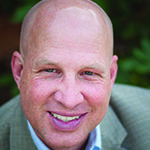 In the feature story of March’s Atlantic Monthly, James Fallows asks, “Can America Put Itself Back Together?” The cover shows a wooden puzzle, each state a fragmented piece, capturing the mood of a nation asunder.
In the feature story of March’s Atlantic Monthly, James Fallows asks, “Can America Put Itself Back Together?” The cover shows a wooden puzzle, each state a fragmented piece, capturing the mood of a nation asunder.
Fallows’ surprising good news is that he believes America can. Over the course of three years, he and his wife toured the United States by a single engine propeller plane, landing in over two dozen cities for extensive interviews and covering 54,000 miles. The vantage point from the sky provides a reframe from travel on congested highways, enabling Fallows to see a bigger picture in many senses.
And the bigger picture he sees is a hopeful one. The path to reknitting the country, he says, is through the revitalizing of our innumerable, garden-variety small to mid-sized interior cities. Not the coastal hubs of New York and San Francisco, but places like Duluth and Sioux City, Louisville and Greenville, Columbus and Pittsburgh. Visiting such cities, Fallows began noticing patterns, and the patterns evolved into a checklist. The checklist condensed into 11 signs a city will succeed. I’m going to list them with the briefest of comments; you’ll not regret reading the fuller explanations in Fallows’ article:
• Divisive national politics seem a distant concern. The focus is on practical, local problem-solving.
• You can pick out the local patriots. Identifiable civic organizers make this town “go.”
• “Public-private partnerships” are real. Beyond euphemisms for sweetheart deals between government and big business, these catalyze their communities.
• People know the civic story. The local narrative links today’s efforts with its past and future.
• They have a downtown. The quickest single marker of the condition of a town/city.
• They are near a research university. Worth as much to a city as a harbor or river, the new incubators of talent and creativity.
• They have, and care about, a community college. If you can’t have a research university, you can have one of these, and they connect people to better jobs and economic futures.
• They have unusual schools. Distinctive K-12 or career training centers marked by cultures of experimentation.
• They make themselves open. In contrast to the inflammation of national anti-immigration sentiment, these cities celebrate assimilation and hospitality to outsiders and the creativity that comes with including outsiders.
• They have big plans. Better than grand, national schemes, these cities have concrete and ambitious blueprints — and get them done.
• They have craft breweries. OK, I totally don’t get this one — nor does Fallows. Perhaps a certain kind of entrepreneur and enough young customers with disposable income?
The upshot of Fallows’ observations was enough to lift my spirits in the midst of a very discouraging current national political climate. Nationally, our civic discourse seems more like a catfight, and our ability to address massive social problems frozen stiff. But when I look at my own town of Chapel Hill, N.C., I see Fallows’ signs of vitality and I see a city on the upswing toward a better future.
My wife, Mary, rightly claims that it shows a sinful lack of trust in the Lord for Christians today to give in to doomsday predictions and fearful despair about the future. And it warms my Baptist heart to remember that one person can make substantive contributions in a congregation or neighborhood or town — and that those good works can be what knit the puzzle back together in our nation.
